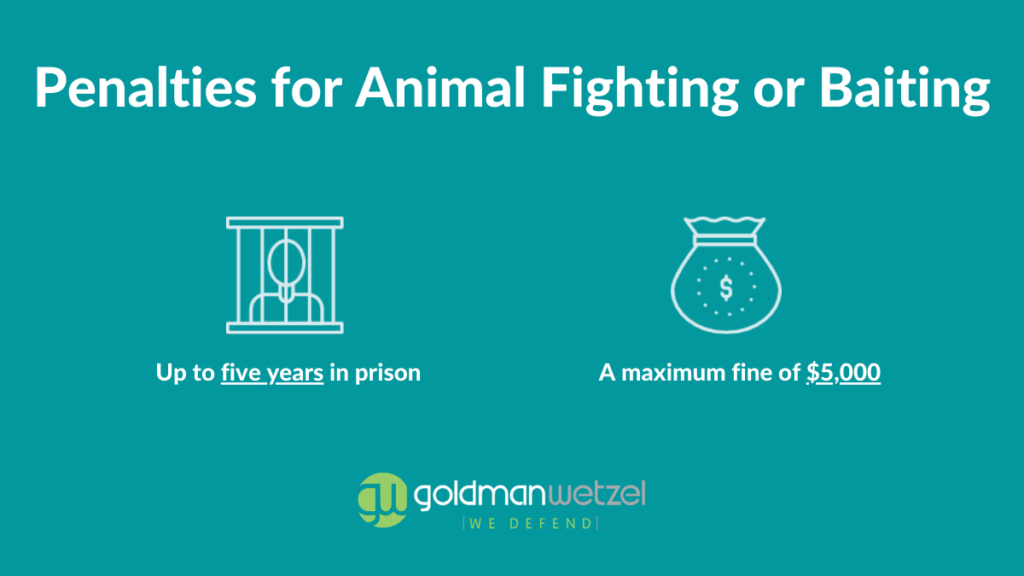While some people might not think of animal abuse as a big deal, Florida law disagrees. The State of Florida currently has several animal abuse laws in place. These laws, which also detail the various animal abuse penalties, protect pets like cats and dogs as well as livestock like cattle, chickens, and pigs.
In Florida, the penalties for animal abuse vary depending on the type of abuse. The penalties for animal cruelty might include up to 1 year of jail and a maximum fine of $5,000. However, the presence of aggravating factors might result in up to 5 years of prison and a maximum fine of $10,000.
If you are caught harming an animal in Florida, you will face criminal charges. The penalties are determined based on the type of abuse as well as the accused’s past criminal record.
Animal Cruelty
Under Florida Statute § 828.12, it is a first-degree misdemeanor to treat an animal with cruelty or in an inhumane manner. Cruelty towards animals includes:
- “Overloading, overdriving, or tormenting”
- Depriving of food, water, or shelter
- Mutilating or killing an animal in a cruel manner
Penalties for animal cruelty in Florida could include one or both of the following:
| Case | Maximum Imprisonment | Maximum Fine |
| Animal cruelty | 1 year | $5,000 |
| Aggravated animal cruelty | 5 years | $10,00 |
Aggravated Animal Cruelty
When it comes to animal cruelty, aggravating circumstances consist of intentionally causing an animal’s cruel death or intentionally causing the animal to experience excessive or repetitive infliction of unnecessary pain or suffering.
This type of abuse is charged as a third-degree felony. As a result, the penalties for aggravated animal cruelty in Florida could include one or both of the following:
- Up to five years in prison
- A maximum fine of $10,000
If the defendant tortured or tormented an animal with the intent to injure, mutilate, or kill, the penalties could also include:
- A minimum fine of $2,500
- Psychological counseling or anger management treatment program
If the state has already convicted the defendant of animal cruelty in the past and the current charge will be the defendant’s second conviction for aggravated animal cruelty, the penalties will include:
- A minimum mandatory fine of $5,000
- A minimum mandatory incarceration of six months
- No chance of parole or early release
Animal Poisoning
Per Florida Statute § 828.08, it is a first-degree misdemeanor to leave a poisonous substance in a common area such as a street, alley, lane, or any yard other than your own. Penalties for exposing an animal to poison in Florida include:
- Up to 1 year in jail; and/or
- A maximum fine of $1,000
Animal poisons can include things like prescription and over-the-counter drugs, insecticides, household cleaning products, rat poison, etc.
Animal Confinement and Abandonment
Under Florida Statute § 828.13, it is a first-degree misdemeanor to confine (i.e., caging or tying up an animal without food, water, air, exercise, etc.) or abandon (i.e., leaving an animal to die or leaving it in a public place with water, food, protection, etc.) an animal.
The penalties for animal confinement and abandonment include one or both of the following:
- Up to 1 year in jail
- A maximum fine of $5,000
The Animal Fighting Act
Under Florida Statute § 828.122, it is a third-degree felony to bait an animal or force animals to fight.
The penalties for animal fighting or baiting include one or both of the following:

You can also face charges if you are caught:
- Attending an animal fight
- Betting or wagering money on an animal fight
- Hosting animal fighting or animal baiting on your land
- Advertising animal fights or charging an admission fee to see one
- Refereeing an animal fight or providing security for the event
- Breeding, transporting, possessing, or selling fighting animals
- Possessing equipment used in animal fighting or baiting
What defenses can I use against animal abuse charges?
The defenses you can use depend on the circumstances of your case and what charges you are facing. Our attorneys will examine your case and figure out the best defense for your situation.
To get started, contact our criminal defense attorneys through a secure email form or call Goldman Wetzel at (727) 828-3900 to book a free consultation.
